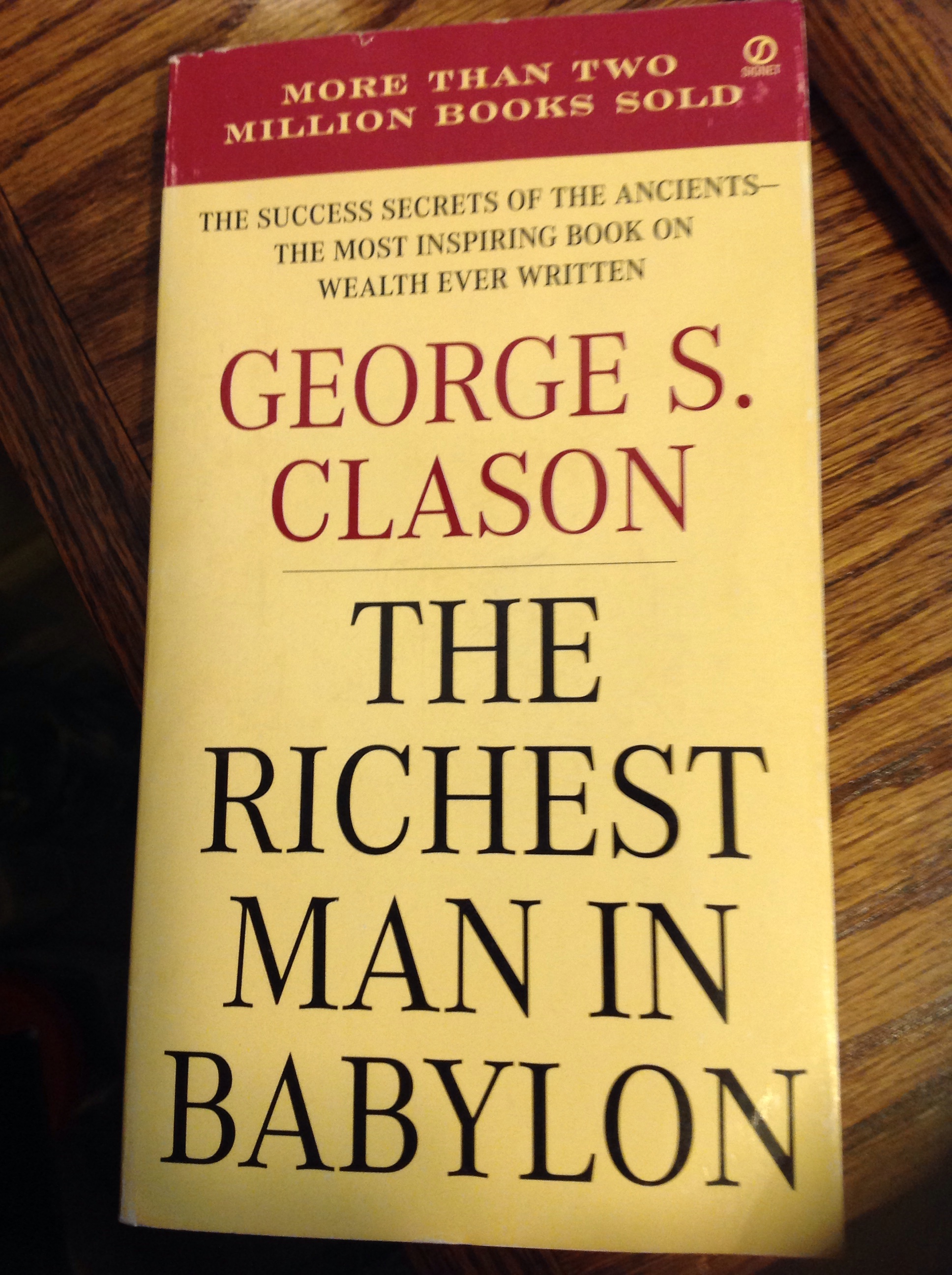Book Review: The Richest Man In Babylon

Any book that has been in print for 100 years probably has something interesting to say. “The Richest Man In Babylon” by George S. Clason was first published in 1926. It’s not quite 100 years old, but I’m going to assume it will still be in print five years from now, so we’ll call it close enough.
This book is a business book masquerading as a novel. It’s set in ancient Babylon. But, it’s really about a few simple business rules.
Cures to A Lean Purse
– Start thy purse to fattening
– Control thy expenditures
– Make thy gold multiply
– Guard they treasures from loss
– Make of thy dwelling a profitable investment
– Insure a future income
– Increase thy ability to earnMen of action are favored by the Goddess of Good Luck
Five laws of Gold
– Save 10% of what you earn
– Invest your money and make it grow
– Get good advice on your investments
– Don’t invest in stuff you don’t understand
– Don’t chase “impossible” gains
These lessons are woven throughout the book and told at least twice, or more in slightly different scenes. You meet various characters, who’s names are not really important other than to hold the sotry together. The book really does introduce you to the richest man in Babylon. I have no idea if there is any historical reference or not.
The writing is clear and the stories move fairly well with the occasional lapse into monologuing.
What I Liked
This book was a gift from my son and I was predisposed to like it. And I wasn’t disappointed. But, I was also not overly impressed. The financial lessons are valid and transdential. At least in terms of time. Absolutely the lessons are valid today as much as they were 100 years ago, and I would expect 6,000 years ago in ancient Babylon.
Clason didn’t beat the reader over the head, even though he teaches the same lesson multiple times.
What I Didn’t
Clason worked hard to create an interesting story to go along with his financial advice. However, the story, as stories go was pretty flat. We don’t really care about these characters. The son who wastes his inheritance? Meh. He’s going to suffer. And then he does.
Also, there is a chapter that is set in 1934. We are introduced to a professor of archealogy at Nottingham University. The professor translates some Babylonian tablets with some of the above rules on them.
I spent way too long trying to figure out how Clason, writing in 1926 could include a scene from 1934. Did he speculate? Was it added in a later edition?
It’s not a good sign when the reader spends more time thinking about how you wrote the book than what’s in the book.
What It Means To You
If you follow the lessons in “The Richest Man In Babylon” you will improve your finances. If you really adopt it, the lessons will help you get out of debt and eventually build real wealth. And you will no doubt, be happier for the change.
Just don’t expect the accompanying story to do much more than provide a simple vehicle for delivering the message.
My Rating
2.5 out of 4 stars (3 for the financial lessons, 2 for the accompanying storytelling)
Stay safe
Rodney M Bliss is an author, columnist and IT Consultant. His blog updates every weekday. He lives in Pleasant Grove, UT with his lovely wife, thirteen children and grandchildren.
Follow him on
Twitter (@rodneymbliss)
Facebook (www.facebook.com/rbliss)
LinkedIn (www.LinkedIn.com/in/rbliss)
or email him at rbliss at msn dot com(c) 2021 Rodney M Bliss, all rights reserved
